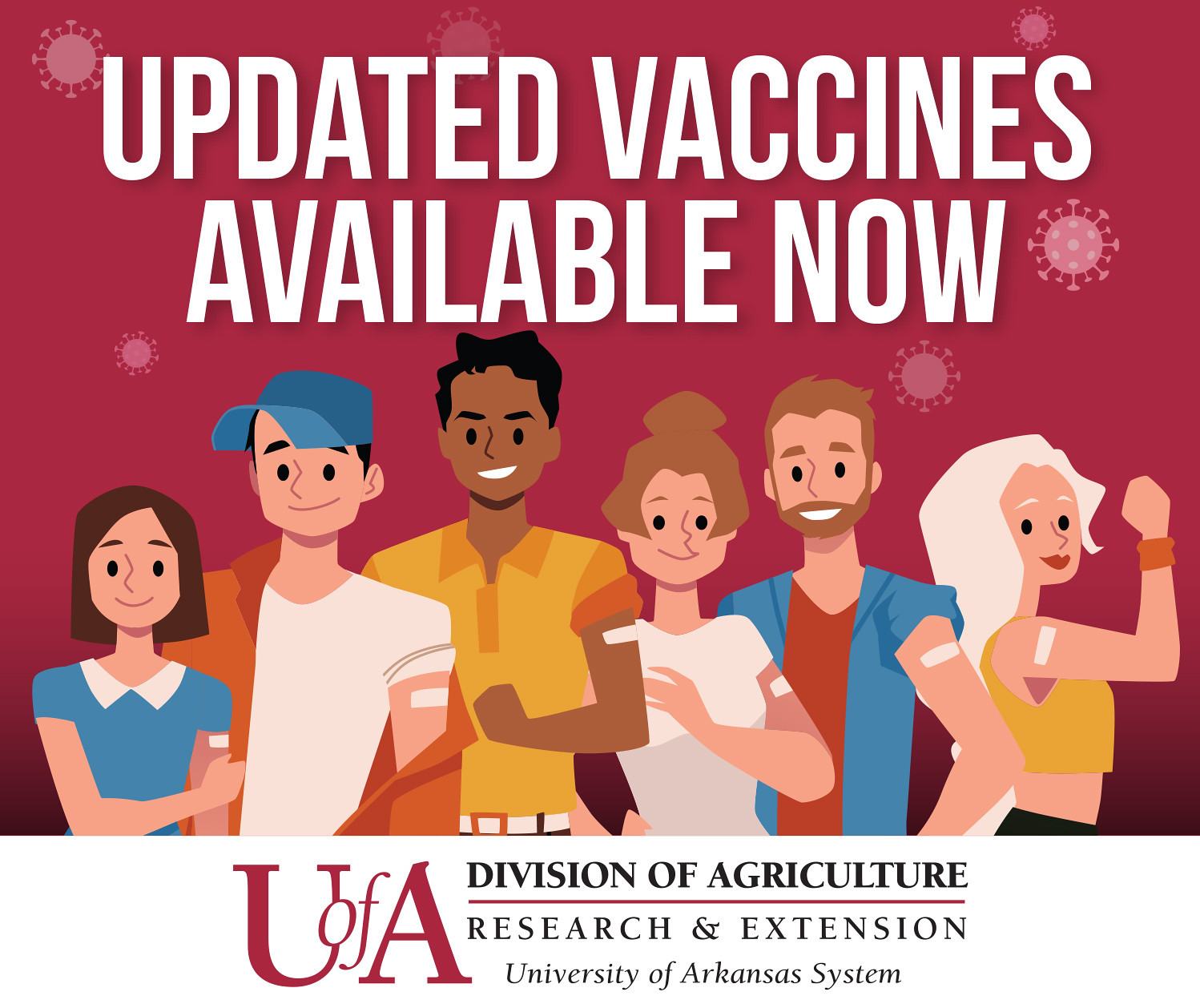LITTLE ROCK — Cooler fall temperatures bring with them the start of cold and flu season. To stay safe and healthy, flu vaccines are recommended for everyone 6 months of age and older. RSV and pneumococcal vaccines are also recommended for older adults.

“We have already seen some positive flu cases this year,” said Heather Wingo, extension immunization educator for the University of Arkansas System Division of Agriculture. “Generally, cold and flu season starts in mid-September and progresses through February, and sometimes into March.”
Vaccines are recommended to prevent illness and keep communities healthy.
“A vaccine is a shot that gives you a tiny, weakened piece of a bacteria or virus into your body, called an antigen,” Wingo said. “This helps your body produce antibodies, or little fighters, to train your body to remember and fight this germ. When your body is exposed to the real virus or bacteria in the future, your body knows how to fight it.
“Not only do vaccines help prevent illness, but they also lessen the symptoms of the illness you’re trying to prevent against if you do contract it,” Wingo said.
Another benefit of vaccines is population immunity, Wingo said.
“When people are immune to a disease, it cannot be spread,” she said. “Population immunity protects entire communities and is especially needed to protect those who are unable to get the vaccine themselves, such as infants and people with medical conditions.”
Signs that a vaccine is working include tiredness, achiness or fever. “These are signs that your immune system is making the right memories to fight illness in the future,” Wingo said.
To understand which vaccines you need, Wingo said it is important to consult with your healthcare provider.
“They can help you figure out which vaccines you need based on your age, health, lifestyle and travel plans,” Wingo said.
Vaccine recommendations
Wingo said all people 6 months of age and older are recommended for flu vaccines. The flu vaccine is a seasonal shot that people should get once a year, preferably before the end of October for “highest effectiveness throughout the season,” Wingo said.
Last year, the United States changed its flu vaccines for the 2024-2025 cold and flu season. Instead of using four-component vaccines, which protect against four different flu viruses, the new vaccine has three components.
“This change happened because one of the flu viruses, called B/Yamagata, hasn’t been seen since 2020,” Wingo said. “The new three-component, or trivalent, flu vaccines will still protect against the most common flu viruses: two types of influenza A and one type of influenza B.”
Wingo said pregnant women should also get the flu shot during each pregnancy, as it can help protect the mother and baby from the flu.
Adults aged 50 and older are recommended for the pneumococcal vaccine, which helps protect against serious illnesses like pneumonia and meningitis. The vaccine is also recommended for people at higher risk of these illnesses, regardless of age.
Adults aged 75 and older are recommended for the RSV vaccine. The U.S. Centers for Disease Control and Prevention also recommends that adults ages 50-74 who are at increased risk of severe RSV disease get the vaccine.
Wingo said the RSV vaccine is not an annual vaccine. Those who have already received a dose of the vaccine, including last year, should not get another RSV vaccine at this time.
COVID-19 vaccination updates
On Sept. 19, the CDC’s Advisory Committee on Immunization Practices voted that vaccination for COVID-19 be determined by “individual decision-making.” This applies to all individuals 6 months of age and older. The CDC adopted this recommendation on Oct. 6.
On the CDC’s adult and child immunization schedules, “individual decision making” is referred to as “vaccination based on shared clinical decision-making,” which references providers including physicians, nurses and pharmacists.
The COVID-19 vaccine is recommended for adults 65 years of age and older, and for individuals with underlying health conditions that put them at increased risk of a serious COVID-19 infection.
Wingo said individuals should check with their healthcare providers about receiving a COVID-19 vaccination. Some insurance companies will cover the vaccine cost until the end of 2026, but this will depend on the individual provider, she said.
To find vaccine providers near you, visit vaccinefinder.org. To learn more about childhood vaccines, visit letsgetrealaboutvaccines.org. For more information about extension immunization education, contact Wingo at hwingo@uada.edu or visit the Immunity in AR Community page on the Cooperative Extension Service website.
To learn about extension programs in Arkansas, contact your local Cooperative Extension Service agent or visit www.uaex.uada.edu. Follow us on X and Instagram at @AR_Extension. To learn more about Division of Agriculture research, visit the Arkansas Agricultural Experiment Station website: https://aaes.uada.edu. Follow on X at @ArkAgResearch. To learn more about the Division of Agriculture, visit https://uada.edu/. Follow us on X at @AgInArk.





